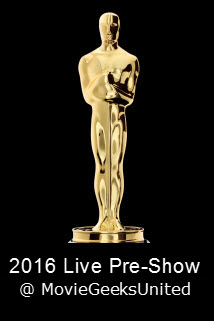The Trial of the Chicago 7 (2020)


Content by Tony Macklin. Originally published on October 22, 2020 @ tonymacklin.net.
The Trial of the Chicago 7 is convincing entertainment. It's not great history.
Written and directed by Aaron Sorkin (who directed Molly's Game in 2017), it again shows Sorkin is a better writer than a director.
He's a writer who contrives cleverly. Several years ago Steven Spielberg asked Sorkin to write a screenplay about the infamous trial in Chicago. For years Sorkin worked on the task. One wonders how the film would have been if Spielberg directed. The film eventually was produced by Spielberg's company DreamWorks, and is now on Netflix.
The Trial of the Chicago 7 is based on the trial in 1969 after the brutal chaos in Chicago the previous year at the Democratic National Convention to select the party's presidential candidate. A huge gathering of protesters convened in Chicago for an anti-war protest. [More troops had been sent to Vietnam.]
Chicago turned into a riot.
A year later, after Richard Nixon became president, Attorney General John Mitchell had 8 leaders brought to trial for inciting a riot between the protesters and the Chicago police and Illinois National Guard.
The film The Trial of the Chicago 7 is based on what happened.
As a director, Sorkin does not feature authenticity. He uses some actual footage, but authenticity is not his forte. The actors are faced with portraying figures that were performers themselves - and it takes a gifted director to show actors playing characters who are themselves playing a part.
Eddie Redmayne as Tom Hayden and Sacha Baron Cohen as Abbie Hoffman are both serviceable. Also convincing is John Carroll Lynch as pacifist David Dellinger.
Most believable are Mark Rylance as defense attorney William Kunstler and Michael Keaton as former Attorney General Ramsey Clarke. Rylance won an Oscar in Spielberg's Bridge of Spies (2015).
One of the film's problems is the performance by Frank Langella as Judge Julius Hoffman. In the actual trial, Hoffman was antagonistic, egotistic, severely pro-prosecution and probably incompetent, but Sorkin and Langella turn him into a nearly-senile, foolish villain. In The Trial of the Chicago 7 Sorkin paints his characters with a broad stroke, and some like Hoffman become near-caricatures.
Sorkin also makes some crucial changes from actuality. In 2020, Black Lives Matter, but not so much in 1969. The film is crowded with blacks in the courtroom and Fred Hampton is an influential figure in the trial. But for the original trial there were few blacks in the audience, and there is no evidence that Hampton even appeared.
In the film, Dellinger throws a punch in the courtroom. Pacifism, be damned. I guess Sorkin thought he needed some action. It never really occurred.
Judge Hoffman issued more than 150 citations for contempt. But in reality, he did so after the jury went to deliberate. In the film he issues many of them in court with the jury present.
One of the best scenes in the movie is when the former Attorney General Ramsey Clarke appears testifying at voir dire at the trial. But the crucial information he says in the film, he never said.
There is a moment when I thought he was going to say, "You can't handle the truth," but he didn't.
Perhaps the most significant addition to the film was the powerful conclusion. Words are put into Tom Hayden's mouth. In actuality they were spoken by Dellinger. And it happened part way through the trial.
Although it's more than 50 years later, The Trial of the Chicago 7 has strong reverberations in 2020.
50 years from now, some artist will try to recreate 2020. It is an age of callow posturing and rampant venality. Right now we live in an era that seems like a clumsy parody.
Lots of luck recreating that.


